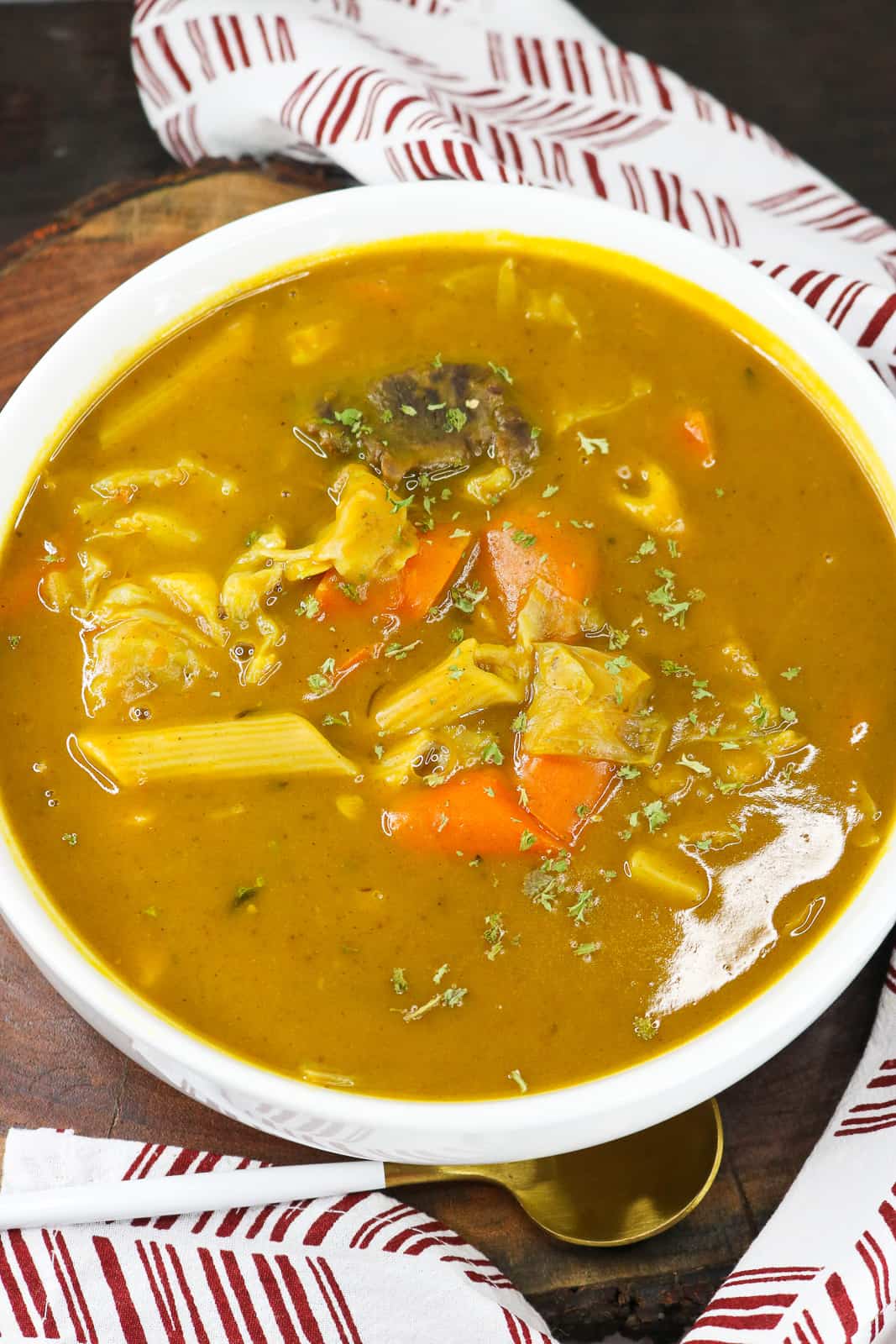Latin America
Related: About this forumCulture in a bowl: Haiti's joumou soup awarded protected status by Unesco
The dish, originally cooked by slaves for their owners, has come to symbolise hope and dignity in the troubled Caribbean country
Saeed Kamali Dehghan
Fri 17 Dec 2021 01.00 EST
Haiti’s joumou soup, a symbol of hope and dignity for the world’s first black-led republic, has been awarded protected status by Unesco.
The soup, made from turban squash and originally cooked by enslaved African people for their owners in Haiti, was on Thursday added to Unesco’s prestigious list of intangible cultural heritage. It is Haiti’s first inclusion on the list, and the country’s Unesco ambassador, Dominique Dupuy, cried as the announcement was made. The decision is expected to be officially endorsed by Unesco’s general assembly next year.
Since Haiti’s independence in 1804, joumou soup has become the national symbol of liberation from slavery, and is traditionally eaten on 1 January, the Caribbean country’s independence day.
“It is a great joy and a point of pride to see this project come to fruition today, just two weeks before the Haitian independence day. It is an important gesture of recognition for the entire Haitian culture and identity, which will further strengthen its influence throughout the world,” said Audrey Azoulay, Unesco’s director general.
More:
https://www.theguardian.com/global-development/2021/dec/17/culture-in-a-bowl-haitis-joumou-soup-awarded-protected-status-by-unesco
~ ~ ~
https:/
/



~ ~ ~
Wikipedia:
Soup joumou (/dʒuːmuː/; French: soupe au giraumon) is a mildly spicy soup native to Haitian cuisine.
The soup is traditionally cooked with pumpkin winter squash. The pumpkin slices are simmered in a saucepan along with pieces of beef, potato, plantains and vegetables such as parsley, carrots, green cabbage, celery and onions. The pumpkin is then puréed, usually in a food processor, with water and the purée is returned to the saucepan. Salt and seasoning along with garlic and other herbs and spices are then added. Some Haitians often add thin pasta such as vermicelli and macaroni and a small amount of butter or oil. A dash of lime juice is added before serving. The soup is always served hot and is usually accompanied with a sliced bread which dipped in the soup.[1][2][3]
Social connotations & liberation
Soup joumou has multiple social and symbolic meanings for the Haitian people. During slavery, only the French colonial masters and plantation owners were allowed to enjoy this delicacy, a delicacy prepared by slaves.[4] After the revolution, the free Haitians were finally able to eat this meal. The soup came to represent freedom, emancipation and independence. It functions as a reminder of the revolution that liberated the Haitian population. On January 1, Haitians both at home and in the diaspora celebrate the first successful slave rebellion that transferred political power its slave majority, with this soup.[2] A local street-food vendor in Haiti was interviewed about the significance of her job and the purpose of her people, she replied “Nou se revolisyonè, nou pran swen youn lot” or "We are revolutionaries; we take care of each other." Specifically, soup joumou was a food source for the French colonial masters on the plantations of Haiti.[2] The meal was ideal for Haitian slaves who were restricted to rations and scraps of food left by their masters.
. . .
After all of the slave labor that propelled the colony into being the world's highest sugar and coffee producers by the end of the 18th century... it was still illegal for the slaves who prepared the food to taste the finished product of soup joumou. Hence, it is no coincidence that Haitians take tremendous pride in consuming the soup that they were once forbidden to eat on the day of its independence. Consequently, soup joumou is traditionally consumed on New Year's Day (January 1), in reverence for and tribute to Haitian independence which occurred in 1804.[2][3]
https://en.wikipedia.org/wiki/Soup_joumou
multigraincracker
(32,713 posts)go together like soup and sandwich.
Judi Lynn
(160,598 posts)Lyonel Trouillot
Sat 1 Jan 2022 04.15 EST
Sharing soup joumou on 1 January represents what Haitians bring to the world – but remembering that inequality prevails is arguably more important
Whispers. Curfews. Never-ending military parades and shows of arms. Opponents’ bodies exposed for children to see as some sort of macabre art. And always, that nasal voice of “Papa Doc”, François Duvalier, chanting on all radio stations. Those were the days of my childhood under a dictator in Haiti. But on 1 January, Independence Day, there were three things that made a difference.
Children in domestic service would visit their godmother and godfathers’ houses, where an envelope containing a few piastres (money) was waiting for them, probably the only gift they would receive during the year.
Patriotic verses and folkloric songs slipped into the official ceremonies. A touch of art between long and scary diatribes against “the enemy” and unconditional pledges of allegiance to the “chief”. The third was the “joumou”, a soup traditionally shared on the first day of a new year.
At the time, the soup only meant to me that my parents had not made new friends. The same faces were invited to eat it together every year: a very tall judge, a one-eyed lawyer who claimed to be able to communicate with the dead, and selected members of the larger family.
More:
https://www.theguardian.com/global-development/2022/jan/01/haitis-new-years-day-soup-joumou-has-made-headlines-but-lets-not-be-naive-about-its-symbolism